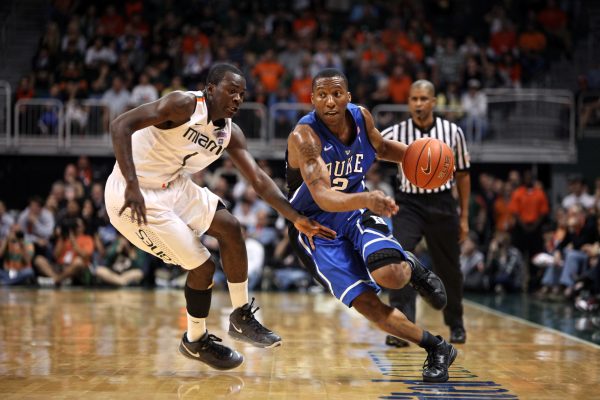
There’s a big audience for the Big Dance. Although the NCAA Tournament has been canceled due to COVID-19 in 2020, an average audience of 10.5 million people tuned in to each 2019 game of the NCAA Division I College Basketball Tournament. But between screaming at the television and obsessively checking their brackets, some fans might not have noticed the subtle ways that broadcast announcers talk differently about lighter and darker-skinned players on the court.
According to colorism theory, darker skinned people are seen as more brutish and lighter skinned people are viewed as more intelligent. Curious how colorism operates within college sport coverage, Steven Foy and Rashawn Ray used video broadcasts of the NCAA Tournament (years 2000-2010) to analyze the types of comments made by broadcast announcers across player skin tone. Athletes’ skin tones were categorized on a scale of lighter to darker skin by Amazon Mechanical Turk respondents. The research team then coded announcer commentary into three different types of discourse: remarks about players’ physical performance (basketball skills like ball-handling ability, rebounding ability, etc), physicality (athleticism, size/height, jumping ability, etc), and mental ability (aggression, cleverness, coordination, etc).
Foy and Ray found that announcers do talk about lighter skinned players differently than darker skinned players. First, announcers are more likely to make comments about player performance, such as shooting ability, with lighter skin tones. Second, announcers are more likely to discuss the physical characteristics, such as athleticism, of players with darker skin tones. And third, announcers are more likely to remark on the mental characteristics, such as cleverness, of players with lighter skin tones. Foy and Ray ultimately argue that color is “not a proxy for race,” and that they are independent social constructs with different features.
This research illustrates how sport is a racialized institution, and that stereotypes based on skin color affect how players are evaluated. Although a lighter and a darker skinned player may be equally good at basketball, a darker skinned player’s abilities are more likely to be attributed to his physical characteristics, whereas a lighter skinned player’s abilities are more likely to be attributed to his skills or intelligence. College basketball fans should keep screaming at the television–but they may want to be mindful of the language they use to cheer on their favorite player.

Comments